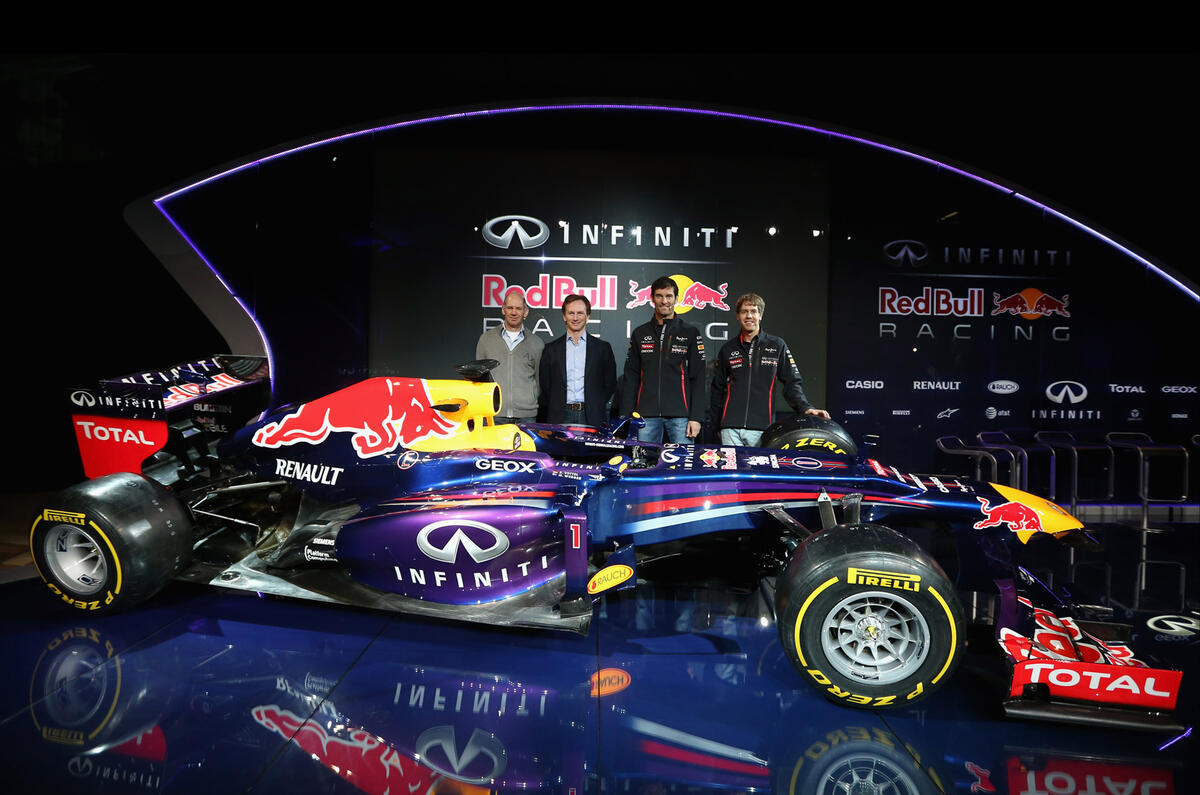No doubt Infiniti’s artful sponsorship link with Red Bull Racing has been one of the marketing masterstrokes of the decade.
Without the stress and expense of setting up its own team, Infiniti has embroidered its name into the fabric of an F1 team that thrashes Ferrari and McLaren as a matter of course. There’s even an Infiniti model designation - Q100 - painted on the F1 car’s rear spoiler.
The benefits are already being enjoyed. Nissan’s luxury brand reckons awareness has grown hugely since the name and logo appeared on Seb Vettel’s and Mark Webber’s winning cars.
Measured in terms of TV exposure, Infiniti has notched-up $220m worth in the first year, $339m last year and $511m this year, even though only nine races out of the 19-strong season have been completed.
Global awareness is, of course, only part of the plan. The long-term corporate goal focuses on 2020 - seven years away or about a single model cycle in car industry terms - when the hope is to have carved out between eight and ten per cent of the global ‘premium’ car market. That’s a considerable increase over today’s 2.8 per cent.
Eventually Infiniti is eyeing about 400-500k sales a year, around a third or a quarter of what Audi, BMW and Merc are likely to record by then.
The Frankfurt show will mark a significant step in that direction with the reveal of the five-door Q30 hatchback concept, which will move Infiniti into more affordable territory of around £20-£25k.
There is a huge question that has yet to be answered, however: How can Infiniti persuade buyers who are increasingly comfortable with the German/British premium brands that buying an Infiniti is on the same level of desirability?
Even assuming that product quality, exterior and interior design, powertrain sophistication and driving excitement match or exceed the opposition, this is a still a very, very steep hill to climb.
Unfortunately recent history is littered with car companies that have faced and failed a similar challenge, not least Rover, MG, Saab, Cadillac and Lincoln. Even established and charismatic brands like Alfa Romeo and Jaguar remain in fightback mode after years of underachievement and underinvestment.
Utimately, investment and the capability of parent Nissan-Renault to sustain Infiniti through thick-and-thin over at least the next two decades will decide whether this venture is a success.
Volkswagen did exactly that while elevating Audi to the enviable position it currently enjoys.
Let’s hope that Nissan-Renault has the same level of commitment, because the excellent start with Red Bull Racing has got the project off to a great start.




Join the debate
Add your comment
Infiniti branding is about as
Infiniti branding is about as successful as the Mercedes, Honda, Toyota F1 teams, but you never know. It might catch on.
Product, product, product...!!!!!!!!
You need more than one car to become a car maker,a car maker of a quality product,something new not just following the herd,jumping on the band wagon,i don't think Williams or Jordan ever made anything out of Renault or Honda,so,doing a super car like this just isn't enough,lending your brand name,being associated with a top F1 team won't overnight into a maker of great car,and, what happens when, if Redbull's bubble bursts and they become an also ran?
Does Infinity have an "F1 image"?
Just because a manufacturer chooses to spend some of its marketing budget associating itself with a successful F1 team, I don't think that guarantees any shift in perceptions.
Certainly it hasn't worked for Renault, despite the fact that the company can lay claim to powering several F1 teams including Red Bull.
I'd have a little more respect for Infinity if it did something a bit more creative with its profits other than purchase a few badges to attach to someone else's F1 car.